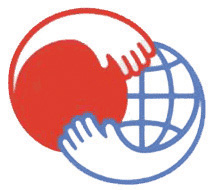|
Technical cooperation is targeted toward development of the
human resources necessary for the economic progress of developing
countries. The fields covered by Japan’s technical cooperation
range widely from basic human needs, such as public health
and medical services to the areas of advanced technology.
Since 1966, Japan has contributed to the Philippines through
technical cooperation. Its cumulative amount up to 2002 is
about US$ 1.6 billion. Japan International Cooperation Agency
(JICA) is the implementation agency for most of Japan’s
technical cooperation activities which includes following
programs;
- Technical Training of Overseas Participants
Japan accepts trainees from developing countries
for technical training courses. The main aim of the program
is to transfer specialized knowledge and technologies.
The program includes training conducted in Japan (both
group and individual courses) and third-country training
held in host countries other than Japan.
1,281 Filipino trainees were invited to Japan in 2002.
- Dispatch of Technical Cooperation Experts
The Expert Dispatch Program has grown into
an important component of Japan’s technical cooperation
since 1955. The program’s key objective is to transfer
and disseminate technical knowledge and skills appropriate
to the needs of partner countries.
In 2002, 265 Japanese experts were dispatched to the Philippines.
- Technical Cooperation Project
As a comprehensive approach to promote technology
transfer, this program provides integrated assistance,
from planning and implementation to evaluation, by combining
three types of cooperation: (1) training programs in Japan,
(2) dispatch of experts, and (3) provision of equipments
and materials. The program is largely implemented in four
sectors: social development; public health and population/family
planning; agriculture, forestry, and fisheries; and industrial
development.
- Dispatch of JOCVs
Under the Japan Overseas Cooperation Volunteer
(JOCV) program, Japanese volunteers with special skills
are dispatched to developing countries to assist in the
socio-economic development of local communities. The volunteers
are between the ages of 20 and 39 and serve in their assigned
countries for two years.
79 JOCVs supported Filipino people in 2002, in the sectors
of agriculture, forestry, fisheries, manufacturing, education
and information services, public health, medical service
and sports in various regions of the country.
- Development Studies
Study teams are dispatched to provide assistance
in formulating development plans for the public sector
and other basic areas of infrastructure, which are keys
to the socio-economic development of developing countries.
The team studies the proposed project or program from
technical and financial viewpoints, and takes into consideration
economic and social factors, organization and management,
environmental impact, and other aspects.
|
|
On-going Project-Type Technical
Cooperation
| Project Title |
Duration |
| Cebu Socio-Economic Empowerment and Development Project |
1999/03/01-2004/02/29 |
| Improvement of Farmer's Income through the Strengthening
of Agricultural Cooperatives |
2000/07/01-2005/06/30 |
| The Water Buffaloes and Beef Cattle Improvement Project |
2000/10/02-2005/10/01 |
| Environmental and Productivity Management of Marginal
Soils |
2000/02/01-2005/01/31 |
| Philippine Coast Guard Human Resource Developmnet Project
|
2002/07/01-2007/06/30 |
| Quality Tuberculosis Control Program |
2002/09/01-2007/08/31 |
| The Project for Enhancement of Capabilities in Flood
Control and Sabo Engineering of the DPWH (Stage II) |
2000/01/10-2005/01/19 |
|


